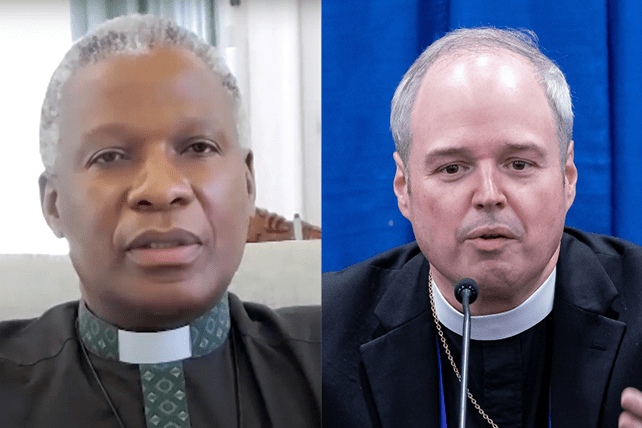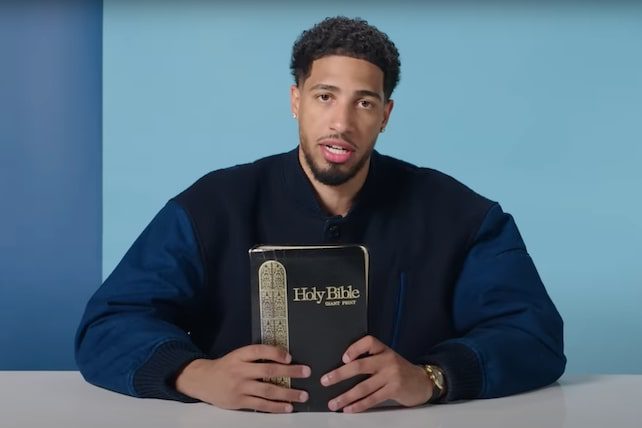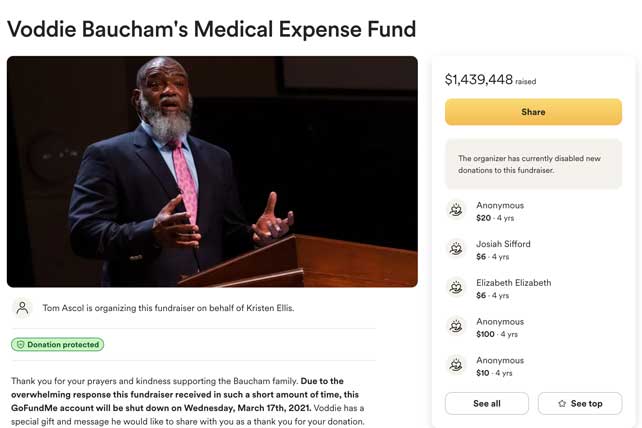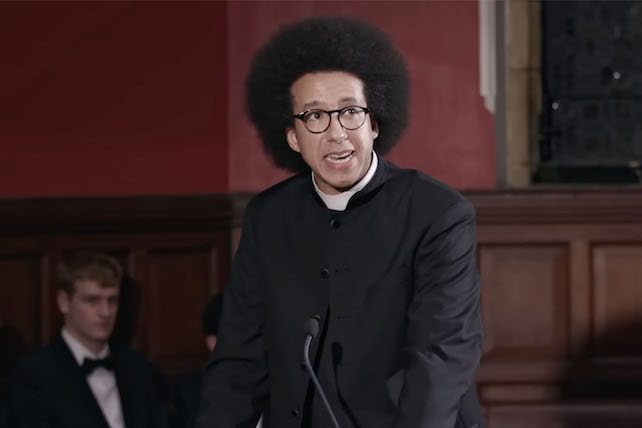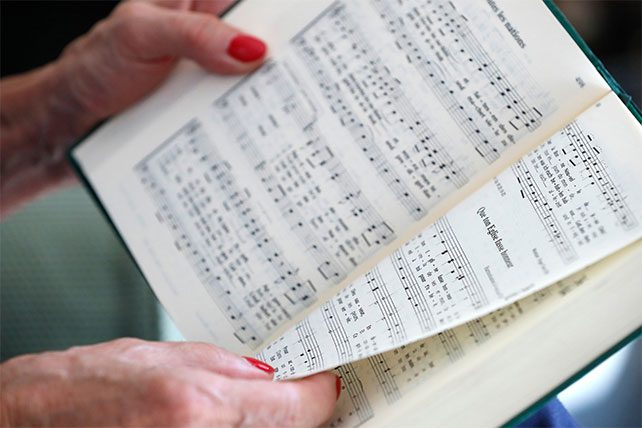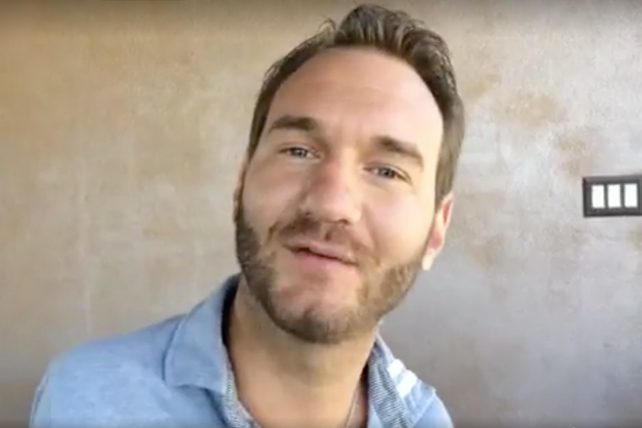PRINCETON, N.J. (RNS) — On a Tuesday evening in early April, an audience sat enraptured in Princeton Theological Seminary’s dining hall as, one by one, adults in their 20s walked up to a platform, took the microphone and shared a story.
“I realized that if God made our bodies this intricate, shouldn’t the care we give others be just as intricate?” Jewel Koshy asked.
“I allowed Jesus to look at me, and I looked at him, and my life was completely transformed,” Betty Freymann said.
RELATED: A Closer Look at the Nation’s Largest Seminaries
“How can we stay inquisitive in a world where excellence is expected and assimilation is often rewarded?” Ray’Chel Wilson asked. “For me, I take my questions to God.”
Despite the setting, the young adults speaking weren’t seminarians: They were entrepreneurs, nonprofit leaders, health care workers and other professionals at a summit as part of the Polaris Young Adult Leadership Network, a new initiative from Princeton Theological Seminary that aims to equip young Christian leaders to find their calling beyond parish ministry.
“If you lead in the public sector, if you are an artist or a business leader or an educator, and you’re deeply motivated by your Christian faith, we think theological education has something to offer there as well,” said Shari Oosting, project director of the Polaris Network.

Ray’Chel Wilson, left, mingles with other Polaris Leadership Summit participants on the campus of Princeton Theological Seminary in early April 2025, in Princeton, New Jersey. (Photo by Raygen Samone Brown for Princeton Theological Seminary)
In recent years, many U.S. seminaries have faced existential threats fueled by the COVID-19 pandemic and a changing religious landscape. As organized religion continues to fade in popularity among many Gen Z, some seminaries are downsizing, combining and embracing online and hybrid models. They are also evolving, offering different certificate programs or degrees tailored for non-clergy students. Some seminaries target retired or second-career students, while others refuse to give up on young adults, instead designing programs to help them live out their spirituality beyond seminary walls.
Freymann, 28, a Dallas-based tech consulting manager and a participant at the Polaris summit, said meeting other Christians doing “the Lord’s work” in the secular world has made her feel less alone.
“I love that we’re pushing to form Christian leaders. Not Catholic, not Presbyterian, not Episcopal leaders, but Christian leaders,” said Freymann, who is Catholic and hosts a Spanish-language podcast for Latino Catholics.
That Monday (March 31), Freymann gathered in the seminary’s library with roughly 30 other young adults. The room was abuzz as participants responded to discussion prompts, wove strands of yarn for an interactive art project and heard a lecture about the church in the modern world. Throughout the summit, each shared eight-minute personal stories about Christian leadership in groups or at the final storytelling festival.

Kennedy Maye at the Polaris Leadership Summit in early April 2025, in Princeton, New Jersey. (RNS photo/Kathryn Post)
“Something that really stood out to me is the fact that everyone is a young adult,” said participant Kennedy Maye, a 22-year-old psychology major at the University of Kentucky. Raised as a nondenominational Christian, she often discusses God with other young adults in her life but said she often finds herself “defending God.” Here, it was different.
Launched in 2023 with a $4 million grant from the Lilly Endowment, the Polaris Young Adult Leadership Network convenes these cohorts while also offering sub-grants to fund their local ministry efforts and provide workshops on topics like mental health, vocational discernment and sustainability. The aim is to combat isolation among young Christian leaders and counteract the narrative that all young people are losing their faith.
“In a lot of ways, these young people are teaching us how to be a seminary for the next generation,” said the Rev. Kenda Creasy Dean, the Mary D. Synnott professor of Youth, Church and Culture at Princeton Theological Seminary and one of the architects of Polaris.
Built to train pastors, many seminaries like Princeton are increasingly welcoming students looking to discern their calling rather than intending to work at a congregation. Dean said she has observed that pastoral credentials don’t have the draw they used to for students, which is mirrored in trends at the seminary.
While enrollment in its Master of Divinity program — a prerequisite for many seeking ordination — has declined in recent years (down to 155 students in the 2024-2025 school year, from 245 students in 2020-2021), Princeton’s master’s programs for leaders interested in theology/sustainability and in justice/public life have grown steadily since being launched in 2023. The seminary has also seen growth in part-time, hybrid and online offerings. And this year, it saw the largest incoming class of degree-pursuing students in the last five years.
According to data from the Association of Theological Schools, an umbrella group of over 270 schools, Princeton isn’t alone. Though enrollment in Master of Divinity programs continues to decline among ATS member schools, down roughly 14% since 2020, that dip has been offset by boosts in two-year, often customizable Master of Arts programs and non-degree enrollment, leading to an overall 1.8% increase in enrollment at ATS schools since 2020.
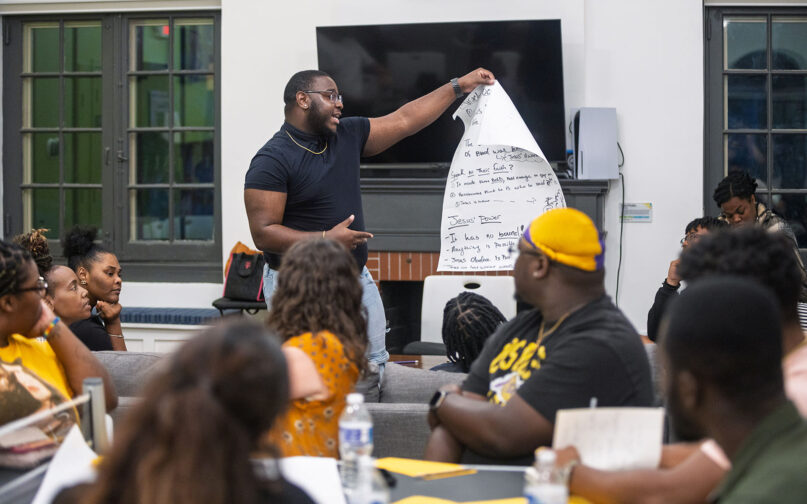
Young Adults Bible study at the Mosaic Hub on July 26, 2023, in North Chicago. (Photo courtesy Mosaic Ministries)
Still, seminaries are facing significant challenges. As a result, Trinity Evangelical Divinity School, an influential Evangelical Free Church school near Chicago, announced last month it will be acquired by a Canadian university and move to British Columbia.
Despite financial setbacks, the school has had a transformative impact on the nearby city of Waukegan, Illinois, thanks to a young adult-centered program called Mosaic Ministries. As part of another Lilly Endowment-funded endeavor, Mosaic Ministries began collaborating with 12 Waukegan churches in 2010 to develop their ministries with the input of young adults. By listening to what young people asked for — space to ask hard questions and do life together, not just host another barbecue, for example — churches adapted.


